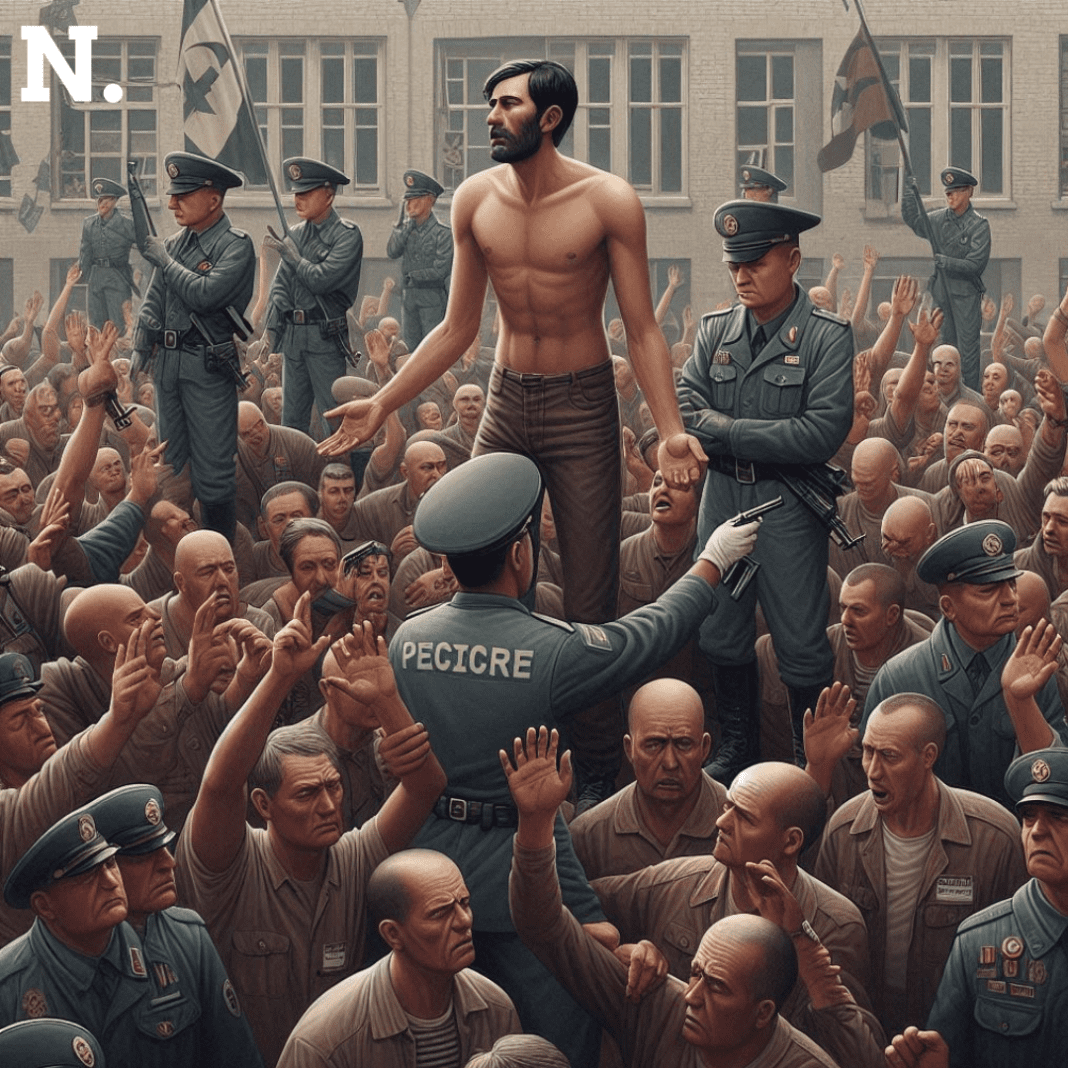Landmine canisters and spent bullets are scattered across the earth in Rihkhawdar, a border trade town with India. Yellow wildflowers have bloomed through the rubbish, corrugated tin sheets that used to be soldiers’ barracks. Trenches, hastily dug, trace one boundary of the camp. Under an overcast sky, the red, white and blue flag with a hornbill at its center — the flag of the Chin National Army, the CNA — flaps in the wind.
Seven months ago, the CNA, with the help of local armed civilian groups, drove out Myanmar’s military from Rihkhawdar and elsewhere in Chin state. In such an unprecedented move, it’s the first time the military has lost control of those areas. And the BBC gained rare access to see some of the fruits of those rebel gains.
Haimul’ tregeady: Against Military Dictatorship
Several offensives, stretched over more than a year’s time, and resulting in significant sacrifices, culminated in the victory in Rihkhawdar. Lalnunpuii was 17, in love with dancing, and an ardent fan of soldiers. When the coup happened, she joined the armed civilian movement. In August 2022, her village, Haimual, attacked Rihkhawdar camp. Her father, Lalzidinga, a former truck driver now a welder, helped build bombs for the offensive. They didn’t succeed in capturing the camp the first time, losing fighters in the process.
In retaliation, the Myanmar army surrounded Haimual. Soldiers set fire to people’s houses and took hostages, including Lalnunpuii and her 15-year-old brother Lalruatmawia. Days later, their bodies discovered showing signs of torture, suggesting that Lalnunpuii had been raped, and her brother had been burned alive.The Myanmar military has not responded to these allegations.
Despite their grief, Lalzidinga and his wife, Lalthantluangi, find comfort in the sacrifices their children made. To them, the fight is all about their children and their children’s children being free. Ordinary people across Myanmar farmers, students, former state workers have all risen against military rule.
Families Sacrifices Against Military Dictatorship
Commander Vala of the People’s Defence Forces stands in the liberated valley outside Haimual, pointing at the graves of those who died in battle with the junta, like Lalnunpuii and Lalruatmawia, at a local cemetery. Hundreds of young recruits, some apparently under 18, were in training at the CNA’s Victoria Base, south of Haimual. Here was Than Dar Lin, 19, whose dream was teaching. But the military torched her village, so she joined the CNA. Thousands of young people like her, who tasted a measure of freedom during Myanmar’s democratic opening in 2011, now find it unimaginable to live under military rule.
Vanlalpekthara was a 22-year-old former policeman. after six days of resistance, he was killed. His mother, Molly Khiang, grieves his death but accepts his sacrifice in this “cause of full victory.” Other rebel groups, such as the Kachin Independence Army and Karen National Liberation Army, also made a contribution toward the success of the CNA. Pa Thang, an Aung San Suu Kyi National League for Democracy politician, holds that the military can never win without the support of the people.
Victory and liberation
The National Unity Government is a parallel government already preparing for future governance. After the military is overthrown civilians will take charge of the government. And also drafting laws and framing a constitution.
The strong belief in victory prevails from the minds of the rebels and their supporters. Pa Thang strongly believed that the people fighting for their freedom are united and resolved. The war would take no more than two to three years.
Conclusion : Strength in unity
The growing sense of revolt all over among common people, ex-state employees, and students reflects the deep-seated rejection of the military rule and the burning aspiration for freedom and peace. The more the CNA trains the fresh recruits and gains the support, the concept of a free Myanmar seems more real than ever. It is the will of the people of Myanmar to build a better future for generations to come that has kept their long struggle for freedom alive.





